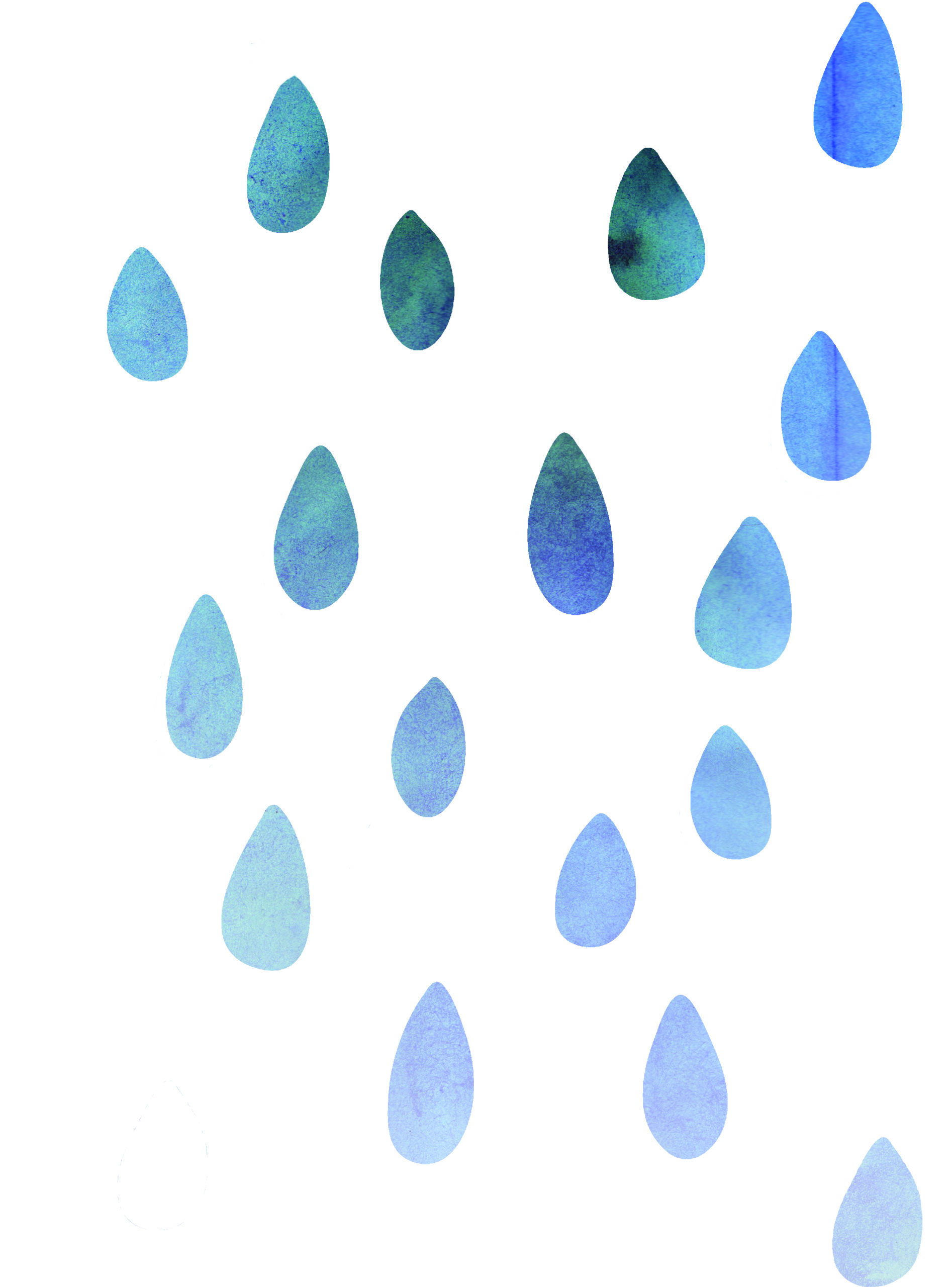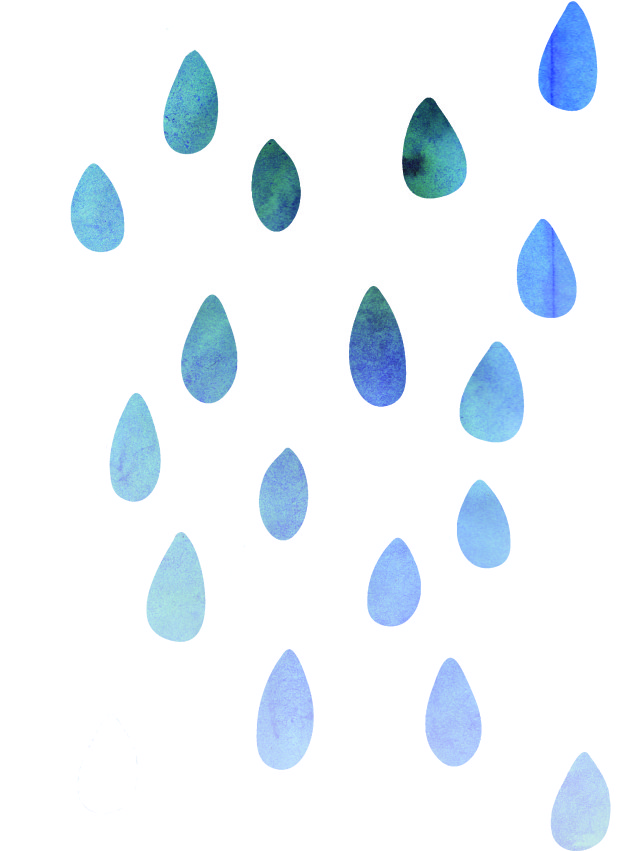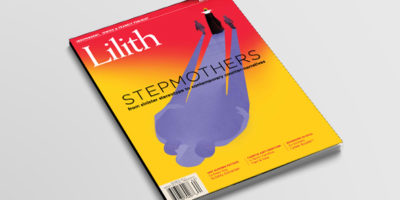
Take Your Tears Back Now
Unable to stop sobbing after her mother dies, Newman follows a friend’s “spa spa spa” prescription to understand her mother’s secrets.
 When she was first diagnosed with ovarian cancer, my mother was 50. The cancer was advanced. Stage IV. The doctors gave her two years.
When she was first diagnosed with ovarian cancer, my mother was 50. The cancer was advanced. Stage IV. The doctors gave her two years.
“You can’t tell me how long I have to live,” she told them. “I’ll decide.”
And so she did. For 14 years, she went in and out of remission. She had multiple surgeries. Non-essential body parts were removed. She became a grandmother, twice. She took acting classes, joined support groups, wrote poetry, discovered facials. She did cancer well. She went from overweight housewife with low self-esteem to role model. She gave hope to other women. With every passing year, her confidence grew.
But when her eyes turned yellow, she knew it was time to stop fighting. The cancer was back, and it had reached her liver. This time the doctors gave her three months. She would prove them wrong again.
My mother went home after her doctor visit. We spent time together that evening, and I asked her if there was anything she wanted to do, before…. We would make up for lost time, I thought. We had three months.
“How about we go to see Jackie Mason together?” she proposed. “I always liked Jackie Mason.”
“I’ll get tickets,” I promised.
The next afternoon, my father called me at work.
“Your mother won’t wake up,” he said. Then there was a long silence.
“But we had three months,” I said.
My father didn’t answer. He had already hung up.
I didn’t buy the tickets, I thought. I was always cancelling on my mother, but this time she cancelled on me.
My mother stayed in bed for the next three days. Alive, but not awake. The first day, I sat on the edge of her bed and waited. I wanted to be there when she woke up. Her breathing hissed like air escaping from a tire. Every breath was followed by a weak cough. Her eyelids flickered.
“Mom, it’s me, Shelly,” I whispered.
She looked in my direction.
“I had a daughter named Shelly once,” she said. Her voice trailed off and she disappeared again.
What did she mean? I wanted to believe she was confused. Was I already a distant memory? A nostalgic footnote as her life drained away? Over the years, I’d done so little to be part of her life. I was always working. I never stopped to spend time with her when that’s all she’d wanted. A lunch. Facials. A mother-daughter weekend together. I made promises I never kept.
Two days later, as if by choice, she cut three months of suffering short. She was sitting in a chair, her hair combed, a pillow tucked behind her head.
“She asked me to take her out of the bed,” the home hospice worker told us. “She wanted to sit.”
All of the histrionics, the dramas, low self-esteem, self-doubt, the woulda-coulda-shouldas, fears, self-sabotage, the need for control — all of the wasted energy that stood in the way of her happiness — and it was all over in seconds. On an exhale.
Even before my mother died, I was a crier. It didn’t take much. A frustrating encounter at the airport. An argument with my husband. An order gone wrong in a restaurant. Crying came easy, always triggered by an unwelcome incident.
After my mother’s death, the tears were out of control. One minute I was fine and the next minute I was fighting for breath, sobbing and heaving, eyes swelling, nose running. In the middle of meetings, my eyes would start to sting. I blamed allergies and pollen as I escaped to the bathroom, or would act as if I’d dropped something, lowering my head to search for a mystery object under the table.
“Go to a spa,” friends suggested.
“Get a massage.”
“A massage would do you wonders.”
Spa, spa, spa. Massage, massage, massage. That’s all I heard from everyone who knew me, and even from those who didn’t. As much as I didn’t like people digging into my body and moving around my stress, I couldn’t help but give the spa idea some thought. My friend Nellie recommended a place in Arizona.
Not only would I get a massage, but by the time I got off the phone with the resort sales rep, I had signed up for their week-long Life Enhancement program. The $3,250 price tag added to my stress. I hung up the phone and cried.
Then, out of the blue, a few days later, a check for $3,333.33 arrived from my grandmother. My mother’s mother was tight with money. She even charged interest on loans to her own children. She’d recently been advised by her accountant to start “gifting” each of her children $10,000 a year in order to avoid or defray taxes. My two brothers and I were each given one-third of what would have gone to my mother. The idea that the unexpected check was in a sense a gift from my mother made it easier for me to feel good about getting my life enhanced. Thanks to my mother, I was making an investment in myself. If she taught me one thing, it was not to wait for a death sentence to work on a life worth living.
A few weeks later, I landed at the Tucson airport. I spotted my name on one of the cards being held up by an attentive row of drivers, each waiting for his respective guests. My driver stood out. Better looks, better health, better posture. I started to cry.
“I’ll take that,” he said, reaching for my luggage and never mentioning the tears.
Looking out the window of the limo was like looking at the postcards my parents had brought home from their one-and-only trip to the Southwest. All pink and gray and pale yellow and green. Cacti and cliffs and adobe houses. It was a summer evening, and the desert heat had switched places with the desert breeze.
We turned onto a gravel road and drove past a gatehouse. The sun was setting, as if on cue. An interracial couple was finishing their check-in. I watched them from behind. Half of an interracial couple myself, I felt comforted by a sense of alignment. People like me stay here, I thought, trying not to stare when the man turned around. He was the film critic and TV personality Roger Ebert. I started to cry. My I-belong-here confidence gave way to no-I-don’t insecurity.
In the first session, all of the Life Enhancement participants disclosed why they were there. Turned out I was spending the week with a group of highly paid individuals, all of whom were highly flawed. Myself included. People struggled with everything from over-eating to over-drinking to over-working and lots and lots of low self-esteem. Each day we followed a schedule of highly structured exercises and activities. I sat through lectures on moderation and work/life balance, struggled to hold a downward dog pose in a yoga class and tried to sit cross-legged on a pillow and “be here now.” I began to think about my mother. She was an over-eater and an under-achiever. My mother would have gotten a lot out of a program like this. Shame she would never get the chance.
As I walked along the cactus-trimmed paths around the property, I saw an unusual number of young women in the company of older women. They looked like mothers and daughters. By the end of the day, I found out why.
“Are you here with your mother?” one of the guests asked me over my gourmet yet guilt-free dinner that night.
“No. No, I’m not,” I responded, debating whether to mention that my mother was dead. “Why do you ask?”
“Well, so many of us are,” she said. “It’s Mother-Daughter Weekend, after all.”
The next day, on a whim, I decided to see a hypnotherapist. The Life Enhancement program included a menu of wellness options and hypnotherapy was one of them. Maybe it could help me control my crying.
“Just relax and tell me about yourself,” the hypnotherapist said at our get-acquainted session. “When did all this crying start?”
My mother loomed large as I described a childhood that was undeniably dysfunctional, but not in any obvious ways. There was no alcoholic parent or child or spousal abuse. No drugs or gambling. No divorce, although I always wished there would have been. Just a detached father and a depressed mother and three kids treated like adults well before a child should be.
“My mother couldn’t handle us. She was in over her head,” I offered. “She may have been agoraphobic, but I’m not really sure.”
I wasn’t hypnotized, but I shared as much as I could remember. What I did know was that my mother had a hard time leaving the house. At times, she would spend whole days in her nightgown, eating and crying until well into the night.
As the session ended, I had an eerie feeling that my mother was somewhere in the room.
The next day I returned for a follow-up session. I would be hypnotized for the first time. The details of how I got into the trance are slightly unclear. I recall staring at some sort of focal point, a stone or a chain. There was an object of some sort. Then there was the backwards countdown from one hundred to I’m not sure what. I do remember feeling heavy, and in spite of being aware of my surroundings, it was easy to just go with the flow.
The hypnotherapist guided me down a staircase and to a door that opened into a room.
“There’s a bookcase by the door. On the top shelf there is a big book. Can you reach it?”
I reach for a big black leather-bound book and pull it off the shelf.
“Your mother wants you to give the book to her,” she continued. “She wants you to know that she’s OK and that she’s ready to take back all the pain and sadness and tears that you were holding onto for her from the time you were a little girl. You absorbed all of that for her, because you didn’t think she could handle it alone. Back then, she couldn’t. But now, she can. So she wants you to pass her the book and by doing so, she wants to take all the tears and sadness back. She knows what to do with it now.”
My face burned and itched as a hot stream of water flowed from my closed eyes. Tears ran down my cheeks and under my neck. I wanted to lift my hand to wipe the wet away, but my hands were heavy. They were holding this book.
“You can’t see her, but she’s there. Give her the book,” coaxed the voice.
My arms reached out into darkness and held the book out until the weight of it lifted.
“Now, you won’t need to cry as much anymore. The next time you feel like you might cry, you’ll count slowly to ten and take a deep breath and the feeling will
go away.”
The hypnotist brought me back into my body and back into the room. “Your mother was in the room,” she said. “I don’t usually experience that so strongly, but your mother was most definitely here.”
The lights were dim and I was confused about what time it was or what I did or didn’t have to do next. Uncomfortable with the silence, my cynical side tried to make sense out of what had happened. The whole mother-in-the-room thing could have been right out of the How to be a Hypnotherapist handbook. But my spiritual self piped up, albeit meekly. You felt her presence during both of your sessions. Doesn’t that suggest something? It had always been so easy to ignore my mother when she was alive, but suddenly she was all that was on my mind.
I wandered from the hypnotherapy session into another form of therapy — mindless shopping. The gift shop offered workout clothes, diet books, and meditation tapes. I really didn’t need a new pair of sweats or another way to prepare skinless chicken. I certainly didn’t need the Sounds of Water.
Two women were busy behind the counter finishing up with other customers. I looked at the jewelry display in the glass case that separated me from them. I was head down, lost in the copper bracelets and iridescent mood rings, when I heard, “Can we help you?”
“Yes, can either of us help you with something?”
I looked up, prepared to give one of the women my soon-to-be new possessions along with my soon-to-be-maxed-out credit card. The two women were standing side by side. My eyes moved down from their faces to the shiny name tags perched just above their breasts. Their names became clear to me one at a time. Ellen. Ruth. My mother’s name. Ellen Ruth. In that order.
I gasped and dropped what I was holding. My mother’s presence was undeniable. It hit me over the head with a pair of name tags and made sure I understood. She was there. Telling me. Letting me know. There is something after death. Call it life. Call it energy. Call it what you will. The saleswomen seemed perplexed, and I just couldn’t find the words so I left the gift shop empty-handed, looking for a place to cry.
As I walked out into the cool Tucson air, the sadness slipped away, replaced by a sense of comfort and calm. I took a breath and counted to ten. The tears didn’t come. My head was clear. My heart was able to take in what had happened.
This had been our first ever Mother-Daughter weekend together, and I didn’t want to ruin it. Stillness was important now. I remembered my mother’s last words to me. They weren’t about forgetting. They were about letting go. I took a deep breath and walked back into the store. The women were still standing side by side, their nametags aligned.
“I had a mother named Ellen Ruth.” I told them. Once. I whispered to myself.
Rochelle Newman has written for Lilith, NAILED, Lunch Ticket and Role Reboot, to name a few, and for business publications Ad Age and AdWeek.



